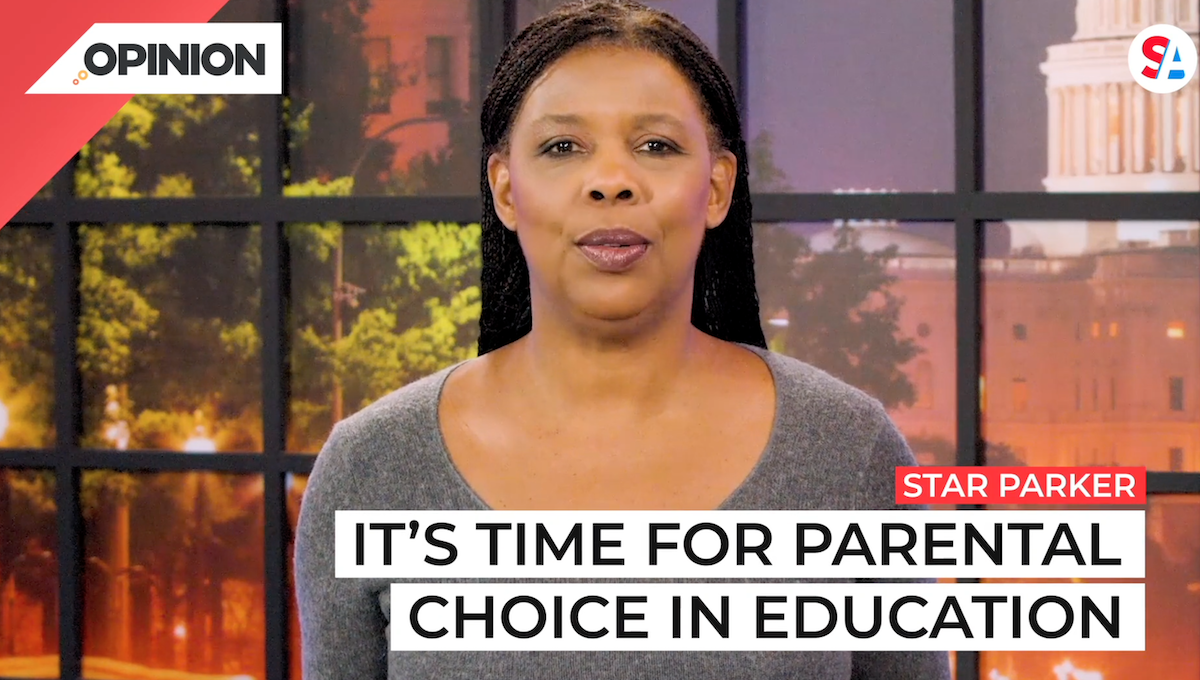
Commentary
-
Our commentary partners will help you reach your own conclusions on complex topics.
The issue of critical race theory is raising a more fundamental question about our nation: education.
Education is about more than teaching children to read and write.
It is about transmitting values, transmitting a worldview, that will define how our youth think and how they will live.
Per the Department of Education, in 2020, 56.4 million children were enrolled in K-12 education.
Of these, 50.7 million were in public schools, and 5.7 million were in private schools.
So, government plays a substantial role in the education of our children.
Per the Department of Education, “Each educational institution that receives federal funds for a fiscal year is required to hold an educational program about the U.S. Constitution for its students.”
In a 2020 survey done by Pew Research just prior to the presidential election, 80% of Donald Trump supporters, and 77% of Joe Biden supporters said, regarding the opposition, “Not only do we have different priorities when it comes to politics, but we fundamentally disagree about core American values.”
Well, if half the country disagrees with the other half about “core American values,” what exactly can we expect public schools receiving federal funds to teach regarding the nature and purpose of our Constitution or about our nation’s history?
In a more recent survey done by Morning Consult/Politico, of those who said they had seen, read or heard “a lot” about critical race theory, 7% of Democrats and 78% of Republicans described it negatively.
Among all voters, 36% said it should not be included in K-12 curricula, and 32% said it should be included.
We’re not talking here about a difference of opinion regarding enacting some new national holiday, or difference of opinion about particular government spending programs.
We’re talking about fundamentally different worldviews about our national history and culture.
In one view, our nation is rooted in and defined by racism and oppression. In the other view, the nation’s founding was a landmark moment in human history, in which, for the first time, a society would be defined by liberty, justice and equality before the law.
Can we have a school system that mixes oil and water? I don’t think so.
Americans are not just deeply divided in understanding our nation’s history. We are deeply divided in our values regarding life itself.
According to a new Gallup poll, for the first time since they have been asking the question, more Americans define themselves as social liberals than social conservatives.
Thirty-four percent define themselves as social liberals, versus 30% defining themselves as social conservatives.
We’re talking here about deep differences in attitudes regarding sex, marriage, family, and abortion.
According to the National Conference of State Legislatures, 30 states and the District of Columbia require their public schools to provide sex education.
But what are they teaching?
We all know that the culture war raging in our divided nation today is about two different and distinguished worldviews that cannot be reconciled.
So, the question regarding how we educate our nation’s children is one that needs attention.
I think it not rational nor reasonable to continue to insist that we can have a universal public school system.
I think there is only one answer.
And if we can all agree that our nation is about freedom, then we should be able to agree that it is time for parental choice in education across the nation.
It is time to let parents decide what their children will learn and give parents the freedom to select a school for their child that teaches the worldview and the values that they want.
It is time for money to follow children to whatever school the parents want.
And my hope is that the U.S. Supreme Court decision in the Maine School Choice case of Carson v Makin this spring, will put a final nail in the coffin of teachers’ unions and other outside interests trapping children in schools against their parents’ values and interests.
It is the only way forward to keep the culture war civil.
-
America is a republic with a legislative sausage factory
Republicans control both the House and the Senate, and while they largely agree on a shared set of funding and tax priorities for the federal budget, they have differing opinions about how to arrive at those goals. Specifically, they continue to debate whether they should try to pass everything altogether in one massive bill or… -
Trump, Bondi crack down on sanctuary for criminal migrants
Attorney General Pam Bondi announced that the Justice Department (DOJ) is suing Chicago, along with the states of Illinois and New York, as part of the Trump administration’s crackdown on undocumented immigrants and jurisdictions that restrict cooperation between federal immigration agents and local police. President Donald Trump has frequently criticized Chicago and Illinois for having… -
President Trump leads with bold action
The first few weeks of President Donald Trump’s second term have sparked a range of public controversies on everything from the Jan. 6 pardons to the abrupt shutting down of USAID and a constitutional crisis between the branches of government. But while Democrats raise alarms over these and other concerns, Republicans are celebrating the achievement… -
Voters are demanding a global course correction
The reelection of President Trump in the U.S., along with the rise of far-right populist figures like Javier Milei in Argentina, Giorgia Meloni in Italy, and Conservative Party leader Pierre Poilievre in Canada, reflects a growing backlash against traditional politicians. Economic struggles, frustration with government “elites,” and debates over cultural issues like gender ideology are… -
Why Trump is right to take aim at federal DEI programs
The new Trump administration is cracking down on the federal government’s diversity, equity and inclusion (DEI) programs, including in the military and in the Department of Education. Trump officials are ordering all federal DEI employees to be placed on leave and eliminating DEI considerations in hiring following an executive order the president signed on his…
Latest Opinions
-
 Getty Images
Getty Images
US changes course, pauses tariffs for all USMCA goods until April 2
-
 AP Images
AP Images
More than half of global fossil fuel-related CO2 emissions linked to 36 companies
-
 Getty Images
Getty Images
Zelenskyy foes met with Trump camp, oppose wartime election: Report
-
 Getty Images
Getty Images
Trump preparing to sign executive order to begin closing Department of Education
-
 Getty Images
Getty Images
Fake bomb threat called during Pro-Palestinian protest at Barnard College
Popular Opinions
-
In addition to the facts, we believe it’s vital to hear perspectives from all sides of the political spectrum.






